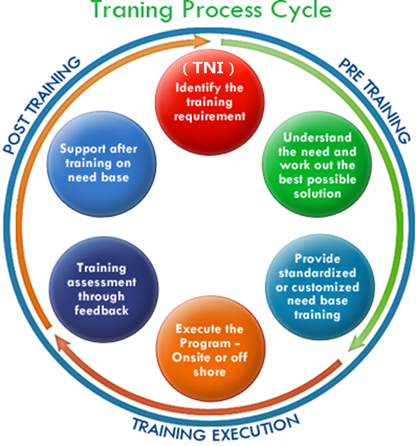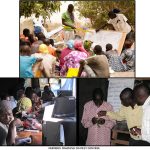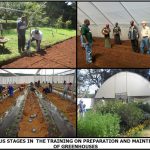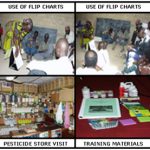There have been some significant developments within the pest control sector over the past twenty years or so in Kenya, including:
- A trend towards controlling pests without using pesticides. This is very much a current issue as many consumers are concerned about the harmful effects of pesticides and chemicals. Hence there is performance gap between the Current pest control practices (Skills) and the Expected (Optimal) pest control practices. This Gap forms an opportunity for a change in Knowledge, Attitudes and Practices (Skills) and hence a need for Training in Integrated Pest Management in the consumers and suppliers of these services in the community.

- There is a general trend towards increasing pressure on businesses to implement effective pest control measures, and tighter regulations governing pest control. Hence these regulations also call for training in pest control measures which are within the Government regulations. This is an emergent training need and opportunity in the Pest Control Services. Hence these changes in Government regulations have led to a requirement for doing Training Needs Identifications.

- Fear of litigation. Businesses have become more susceptible to legal action for breach of legislation and having an effective pest control program in place demonstrates that they have observed due diligence, which can be used as a defense. For the pest control sector, this has meant that there has been a greater emphasis on proofing premises against infestation rather than dealing with existing problems. This has therefore led to a requirement for implementation of Trainings in Proofing of premises against pest infestations.
- Climate change; as the climate has become warmer, more exotic pests are able to survive in new environments and the sector has had to adapt to be able to deal with them. This has then called for the implementation of Training as process of filling in the performance gap in pest control techniques due to global warming and climate change
- On the other hand as the world population continues to rise with the attendant climate change and global warming food insecurity is becoming a real time bomb which may lead to future wars, hence the need for greenhouse farming. Green house farming also reduces pest loads in crops.
Integrated Pest Management Training
Why do we conduct Integrated Pest Management Training?
Integrated Pest Management or IPM, as it is commonly known, is a system of managing pests designed to be sustainable. IPM involves using the best combination of cultural, biological and...
Farmers Training On Pest Control
Why do we conduct farmer Pest Control training?
The purpose of the Training Services is to ensure that farmers and other Stakeholders access appropriate agricultural pest control skills for the development of agriculture as an industry and achieve...
Green House Training
Why we conduct Green house training?
Our Greenhouse Training Program gives you the opportunity to learn hands-on propagation, starting from plant seed or plant cuttings. We use several varieties of plants depending on your training needs....
Termite Control Training
Why do we conduct Termite control training?
At Jannakill Pest Solution Services we take training in termite control as an essential component of effective Termite management programs. This is because with respect to termites, individual property...
Public Health Pest Control Training
Why do we conduct public Health pests control training?
Public health is defined as "the science and art of preventing disease, prolonging life and promoting health through the organized efforts and informed choices of society, organizations, public...




